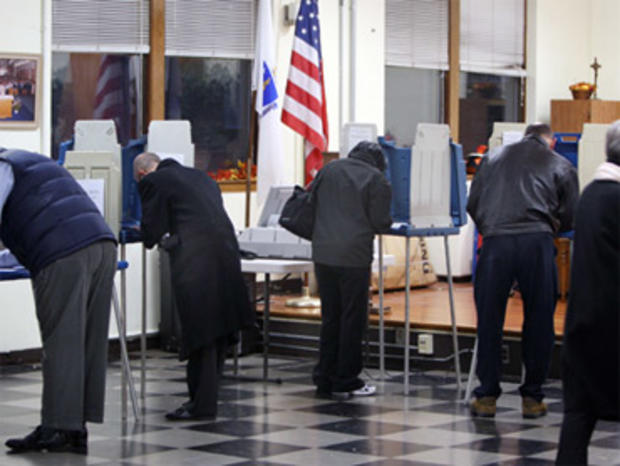Florida poised to move Republican primary forward to late January
UPDATED 1:45 p.m. ET
Florida appears poised to schedule its Republican primary in late January, earlier than national party officials want, setting off a chain reaction that would send Iowa voters to make their choice for president the first week of 2012.
A spokesperson for Florida House Speaker Dean Cannon tells CBS News that the commission appointed to select the state's presidential primary date is expected to announce on Friday that the Florida primary will be January 31, 2012.
The commission had been looking at a February 21 date, but Florida officials moved their target date forward this week after reports over the weekend that Missouri, Colorado and Georgia were looking to get a headstart on Florida.
The staff of the Florida governor, Senate president and House speaker, all Republicans, who each appointed 3 of the 9 members on the panel, have been discussing the move and are pushing for the January 31 timetable, the earliest possible date that the commission could pick for the primary, aides said.
But Florida Democrats say not so fast. "In my opinion, this is a game of Republican Party chicken between states," said Scott Arceneaux, the Executive Director of the Florida Democratic Party. Arceneaux told CBS News that the move is a bluff and ultimately the commission will come to an agreement on the February date. The primary date game is "a detriment to the voters and taxpayers of Florida who want to know their election will be," he said.
Sources say this is a late in the game move between states to settle the primary calendar. States have until this Saturday, October 1 to get their planned primary dates submitted to the RNC. Florida officials are particularly worried Georgia, where the secretary of state, Republican Brian Kemp, has the sole authority to select that state's primary date, will move up ahead of Florida. Kemp plans to make his announcement for Georgia's preference on Thursday at 11:00 a.m. ET.
The goal of the commission, and the Florida elected officials, all along was to ensure that Florida had the fifth primary, behind Iowa, New Hampshire, Nevada and South Carolina. The Republican National Committee had been pushing Florida for a date later in February or even March, to keep the first four primaries in February to avoid what happened in 2008, when Florida moved its primary up causing an early push of primary contests with the Iowa caucuses being held the first week of January. It appears that the exact situation that the Republican Party was hoping to avoid, if the January date is selected, is likely to happen again in 2012.
The Republican National Committee has tried to keep its preferred calendar by threatening not to seat delegates of states that jumped the calendar at the Republican convention that will be held in Tampa. That threat apparently hasn't swayed Florida officials, who cited the "impact" and "momentum" that a candidate would get by winning such a large swing state primary that early in the process, as the basis for their decision. Officials said they were "looking out for the voters of Florida" to make sure Florida had a significant role in the nomination process. They also didn't believe the threat of not seating delegates as a serious concern, as they noted that there hasn't been a contested Republican nomination contest in some time.
"There's no way to win the White House without Florida," said Brian Hughes, the Communications Director of the Republican Party of Florida, citing the importance of having Florida have a sizeable role in the nominating process. Having campaigns be "put through the paces" in Florida is "good for our eventual nominee" he said.
A state like Florida, large as it is, tests the fundraising mettle of those who want to compete in its multiple, expensive media markets, and can be a make or break state for upstarts who use grassroots efforts in smaller contests. The cost of competing in Florida makes the investment there that much more perilous, as failing to win after spending a lot to compete could break a campaign. Florida also boasts a larger percentage of senior voters, those over 65, than other early states, highlighting the already growing rift between front runners Texas Governor Rick Perry and former Massachusetts Governor Mitt Romney over Social Security.

